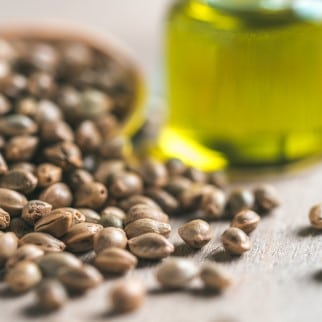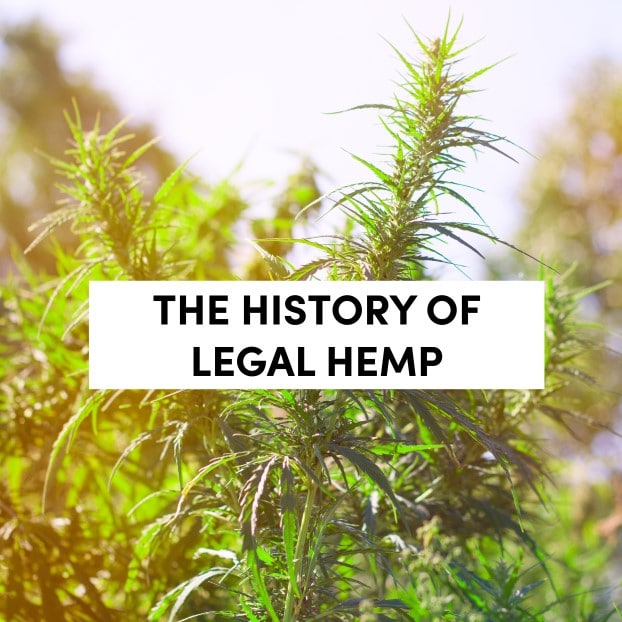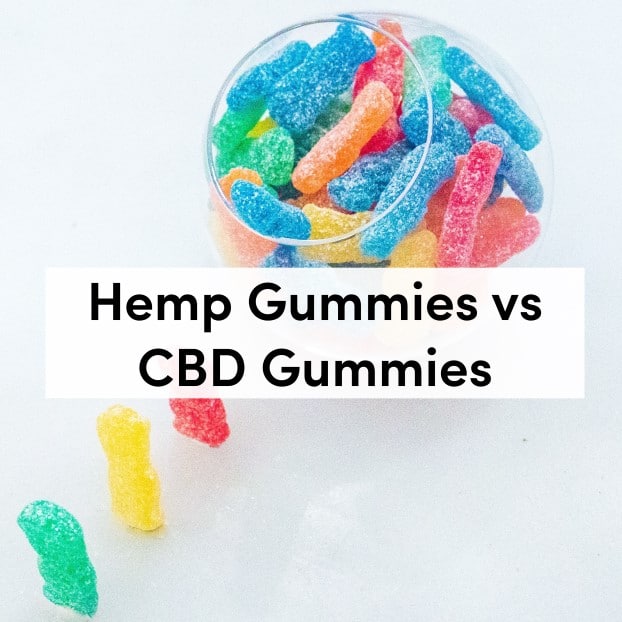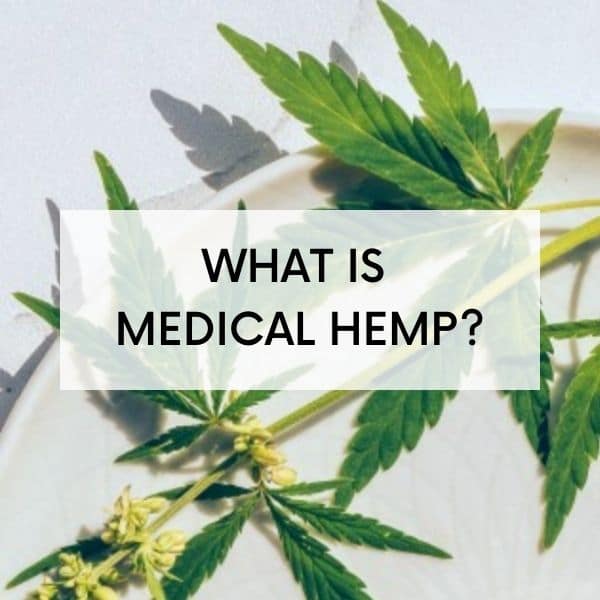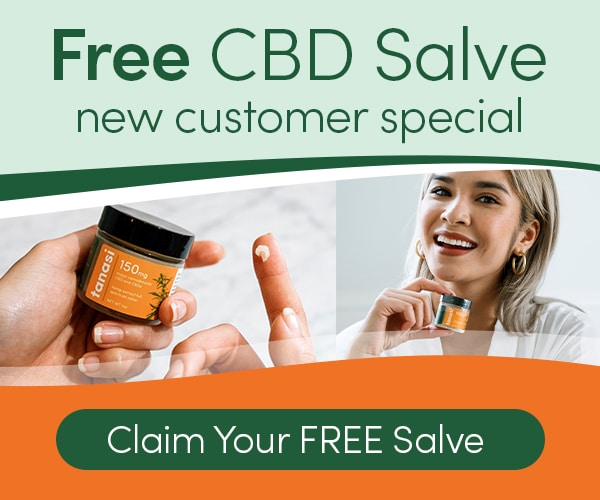Organic Hemp: What is Hemp and Why Does its Growth Matter?

Posted on June 29th, 2021
What is hemp and why is demand for organic hemp growing? Well, hemp is an ancient crop. But, today, people are rediscovering hemp’s many applications. And they’re looking for new ways to enjoy its extracts.
Some people turn to hemp extracts for wellness supplements. Textile companies manufacture hemp fiber clothing. Even insulation manufacturers use the plant for environmentally friendly and efficient raw material sources.
To meet this skyrocketing demand, many farmers now cultivate hemp, but not many choose to grow organic hemp, since doing so lowers efficiency and profitability. But what is hemp? And why would you prefer an organic product? We’ll explore answers to both those questions in this post!
What is Hemp?
Hemp is the legal definition we give to cannabis plant varieties with low THC content. In the U.S., plants must contain less than 0.3% THC by dry weight to earn a hemp classification. But in other countries, like the United Kingdom, that content can’t exceed 0.2%.
Now you understand the legal definition of hemp. But here’s why it’s important. THC has psychoactive properties. So, if you take a cannabis extract from a high-THC plant, you could get high. Use extract from a low THC plant? You’ll enjoy higher CBD concentrations. And you won’t have to worry about altering your state of mind.
Of course, hemp contents don’t change based on how they’re grown. But many people still prefer organic hemp to other growth methods. Why is that the case? Keep reading to find out!
What Makes Hemp Organic?
To grow organic hemp, farmers can’t use man-made fertilizers, pesticides, fungicides, genetically modified seeds, or growth regulators. Instead, these farmers use the old-fashioned crop rotation technique. This usually leads to less crop yields when compared to somebody who doesn’t farm organically. Which is why, when it comes to earning a livelihood on large crops, you can understand why many farmers choose the non-organic option.
You may think that avoiding pesticides is the only thing necessary to call a crop organic. But there are many more steps to the process. Organic hemp needs to meet a range of FDA criteria. Otherwise, it can’t receive organic certification. For instance, hemp always needs to be grown in clean, healthy soil that’s free from heavy metals and toxins. This is essential for hemp growth, since the plant can absorb certain soil toxins.
 Organic vs. Non-Organic
Organic vs. Non-Organic
As you might expect, we source organic CBD oil from organic hemp. And organic CBD oil may be a safety product. For instance, people might turn to CBD oil to ease pet anxiety or pain. But additives in non-organic CBD oil might affect your pet’s overall health. As a result, when shopping for CBD oil, you may wish to look for products with an organic label. Here are several ways that organic hemp may offer better outcomes.
– Field quality. Typically, farmers spray non-organic crops with lots of chemical pesticides. Although this helps to keep most bugs away so plants can thrive, they also destroy other natural soil compounds. Because of this, the soil loses its natural fertilizer, and farmers apply chemical fertilizers. This is generally not ideal for the hemp plant, as well as the future CBD oil.
– Pollinators. Non-organic pesticides don’t distinguish between good and bad insects. With synthetic pesticides, only the plant remains alive. For this reason, many pollinators (a vital component of our delicate ecosystems) are killed.
– Fewer chemicals in oceans. You might already know that everything that we utilize in the soil ends up in the oceans. Fertilizers and pesticides that enter the oceans might harm biodiversity and probably lead to unusual microbial growth.
Lastly, and most importantly, we need to take our own health into consideration. You do not want toxins, metals, and chemicals from fertilizers and pesticides in your body. And that’s where they end up if they make it from the hemp plant into any product.
Benefits of Organic Hemp
This natural nutrient source may also help remedy a multitude of issues. The following are just a few potential uses:
– Benefits for skin, nails, and hair
Hemp extracts show up in a host of beauty products, and the extracts are also popular skin moisturizers. Research shows that hemp can reduce skin dryness and lower irritation. Thanks to its anti-inflammatory qualities, it can also minimize pain, aging signs, and reduce redness in the skin.
– An improved heart condition
Organic hemp oil consists of omega 3s and 6s in the ideal ratio of 3:1. The combination is perfect for human nutrition and is shown to support our cardiovascular and heart functions. The fatty acids available might also support biological processes and could prevent certain degenerative diseases.
– A supply of fatty acids without mercury
As you might know, fish is an excellent source of omega-3 fatty acids, which are crucial to our diets. These fatty acids are touted for their many advantages to mood regulation, brain development, and the immune system. Nonetheless, fish might also consist of substantial amounts of mercury. Mercury is harmful to pregnant women and might inhibit the neurological growth in unborn babies and the body’s mechanisms. Requiring organic hemp to grow only in clean soil without heavy metals means hemp seeds won’t contain mercury.
Down Side of Non-Organic Product
It might sound like this debate on organic vs. non-organic is comparable to our food industry where you find vegetal, organic, natural, and many other forms of products. Nonetheless, a non-organic food doesn’t often contain as many toxins and chemicals as non-organic CBD oil can.
And as you’ve learned, the hemp plant absorbs metals and toxins from the soil thoroughly. That means that if the soil surrounding the plant is rich in chemicals, then its oil will contain them too. As a result, this will harm both your health and the plant’s surrounding environment.
 Legal Standing
Legal Standing
Hemp oil is no longer a controlled substance and is currently a legal agricultural crop throughout the USA. The 2018 Farm Bill made this possible. Farmers need to request a certification packet to apply for certification. To comply with present USDA instructions, growers need to submit a copy of their state, federal license, or registration with their application.
Hemp legalization might be new for US farmers, but some other countries have been growing hemp within the USDA organic regulations for years. Since as early as 2004, handling operations in the U.S. have always been certified for products created from imported organic hemp. You should expect a huge surge in applications when it comes to hemp certification in the U.S.
Typically, the USDA organic regulations don’t limit the kinds of products that can come from organic plants, such as CBD. According to the 2018 Farm Bill, this includes any part of the hemp plant, as well as all sorts of products from hemp.
Legal Definition of Hemp
According to SEC 297A, Hemp Production DEFINITIONS, the term “hemp” describes all parts of the plant. This means seeds thereof and all extracts, derivatives, salts, acids, isomers, cannabinoids, and salts of isomers, regardless of if it’s growing or not. Additionally, it must contain delta-9-tetrahydrocannabinol concentration not exceeding 0.3% of the dry weight.
Other state regulations might apply to hemp and its products. However, this is also true for most other certified organic products. Appropriate authorities enforce those regulations, and not organic certifiers.
Originally, hemp began to bounce back in the U.S. after the enactment of the 2014 Farm Bill. Nevertheless, the USDA put stricter restrictions on that certification and gave out instructions to certifiers.
On November 26, 2019, the instruction was renewed to include the changes arising from the 2018 Farm Bill. When it comes to hemp in the U.S., farmers must follow the 2014 Farm Bill and/or the U.S. Domestic Hemp Production Program to get organic certification.
Key Takeaways
For many industries, growing organic hemp is not an issue. However, for the environmentally-conscious consumer, this is a problem. For instance, hemp doesn’t have to be organic to create house insulation from it. However, those constructing an eco-house might feel better knowing the hemp was organic, thereby further reducing the environmental impact.
If you are looking forward to ingesting hemp products, it is a much greater concern. Most people opt for hemp seed since it’s a nutritious source of vitamins and proteins. Beautiful it doesn’t come from organic hemp, you might be consuming seeds grown with lots of nasty chemicals. For instance, it’s easier and cheaper to purchase hemp seeds from your local pet store. Hemp seeds are becoming popular as animal feed. However, it is unlikely that these retailers stock the best quality for human consumption.
Organic hemp is also vital for CBD producers, such as Tanasi. Since they don’t want any GMO products or chemicals ending up in their CBD oil, they go an extra further to ensure the hemp they use is organic. Therefore, you should always double-check before you buy!
Regardless of how you want to use hemp, requesting organic will allow a more ecologically sustainable industry, and guarantee the product you receive is pure. Since supply meets demand, when you ask for organic hemp, more farmers will begin to grow it.

